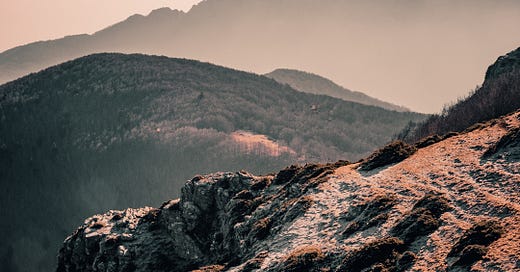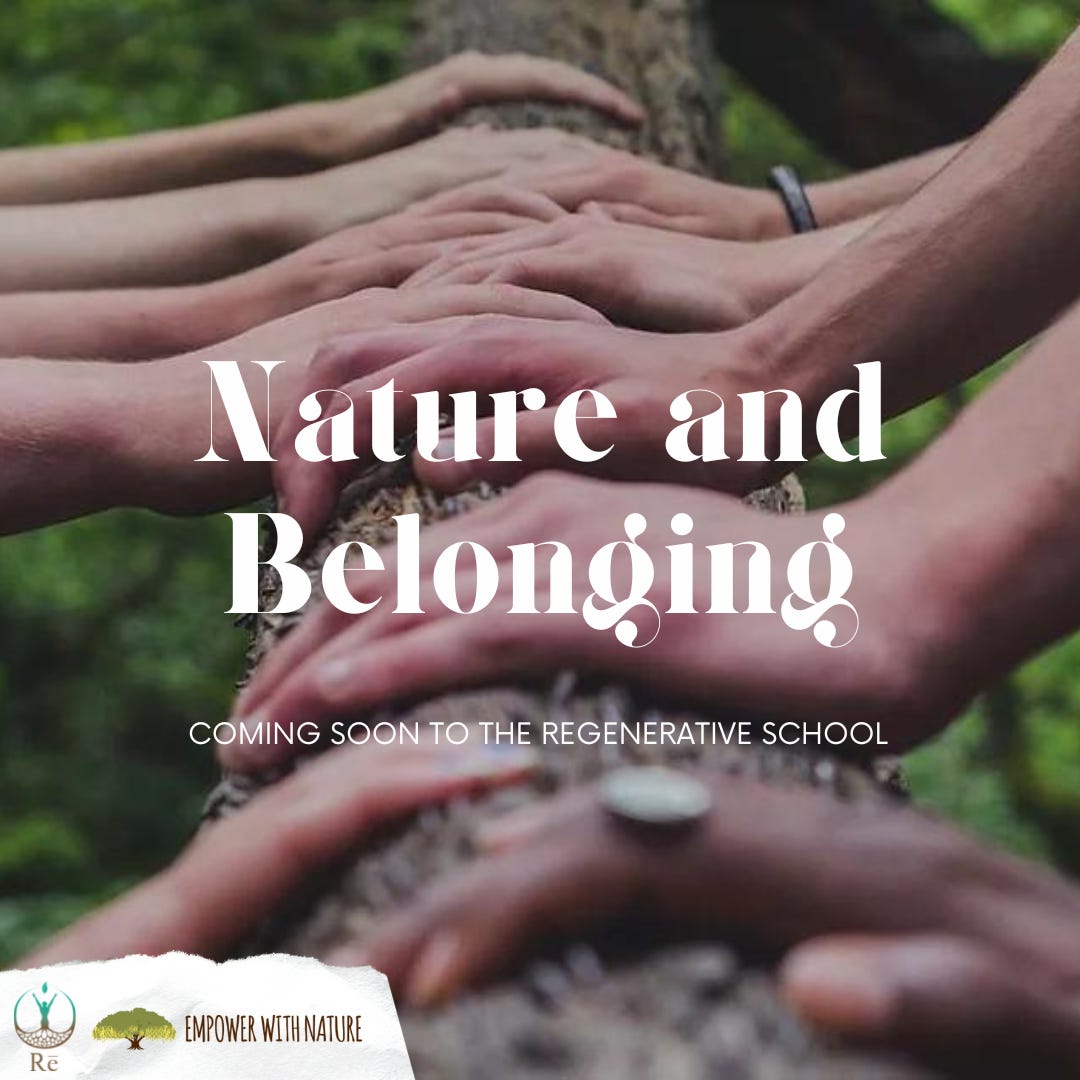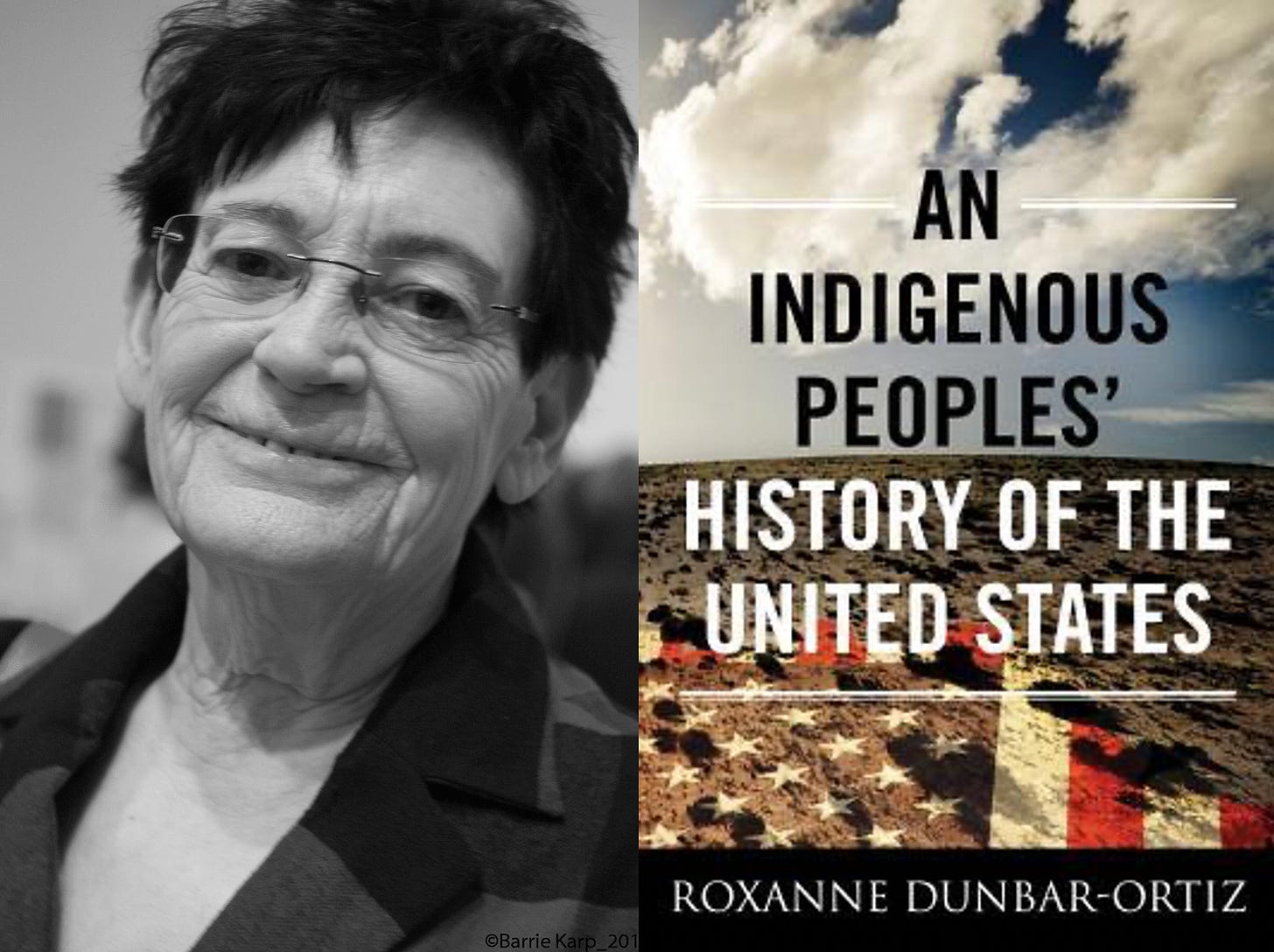No. 036: Indigenous People's Month
Updates from Rē / COP27 / US Midterms / Indigenous Rights / Puerto Rican Sovereignty / Workplace Benefits of Hunter-Gathering / USDA-Sponsored Agroforestry / President-Elect Lula and the Amazon...
November is Indigenous People’s Month, it’s a time to celebrate rich and diverse cultures, traditions, and histories and to acknowledge the important contributions of Indigenous people. How do protected areas impact indigenous rights? What can modern-day workplaces learn from ancestral hunter-gatherers? How will Brazil’s president-elect protect Amazonia and its peoples? These are questions we explore through this week’s recommended reading.
COP27 begins tomorrow and US midterm elections take place this Tuesday. As always, we offer you some resources to contextualize current events through a regenerative lens.
Keep scrolling for more.
Two exciting course offerings are soon to be added to the Regenerative School online library! Watch this space for more details and information.
Our three part Nature and Belonging series is back! With the transformative knowledge of Empower with Nature's Maya Galimidi, we will ground and re-build connection to place. We will explore diverse concepts and use phenomenological techniques to engage our senses and heighten our levels of observation. Through a deepened understanding of ecopsychology and the “ecological self” we will reconnect to place and purpose. Consider this class a personal invitation to ROOT: within yourself, and wherever you are.
"The opposite of to remember isn't to forget, it's to dis-member," according to author Parker Palmer. Theologian and researcher Sara Jolena Walcott, founder of Sequoia Samanvaya, applies this framework to our fragmented, short-sighted understanding of climate change. In ReMembering the Origins of Climate Change, a new, three-part course, Sara traces the roots of climate change back 500 years to its roots in colonialism, racism, and church doctrine. Along the way we will delve into our own family histories to make sense of the deep story of how we have arrived at today's climate crisis and how we can instead choose to build a more regenerative future.
Daniel Sherrell’s “The Responsibility to Construct the World as It Should Be,” for The Drift, describes the path forward for building a more climate-conscious world. Our climate movement, he directs, “will require recommitting ourselves to understanding our movement as an ecosystem, so that those chaining themselves to pipelines and those lobbying the Senate see each other not as dumb distractions but as legitimate allies pursuing complementary strategies.”
In “UN: Conservation shouldn’t cost Indigenous lives,” Joseph Lee examines how biodiversity protections are a threat to human rights. “Protected areas are often created without the free, prior, and informed consent of Indigenous peoples in violation of international mandates and principles. Once established, Indigenous communities often have limited access to their ancestral lands or face forced evictions and violence from eco-guards.” We hope Indigenous rights are highlighted, prioritized, and present at the upcoming COP27.
“Our disasters are not hurricanes… It has to do with our control of our own resources, or lack thereof, and decision making around our infrastructure, whether it be education, health, or electricity.” In Them’s “How El Departamento de la Comida Fights Colonialism Through Food,” Leah Kirts explores the struggle for Puerto Rican sovereignty through land access and food production.
Last month, the USDA announced the Partnerships for Climate-Smart Commodities funding program, investing up to $2.8 billion in 70 projects, one of which includes $60 million to advance agroforestry. Erik Hoffner explores the enthusiasm and implications of federal funding in climate-positive agriculture in “American Agroforestry Accelerates with New Funding Announcements” for Mongabay: News and Inspiration From Nature’s Frontline.
Tomorrow, world leaders will meet in Sharm el Sheikh, Egypt, for two weeks of climate negotiations as nations struggle to cut greenhouse gas emissions amid a global energy crisis, war in Europe and rising inflation. Lisa Friedman breaks down goals, protests, energy transitions and targets in “What Is COP27? And Other Questions About the Big U.N. Climate Summit” for The New York Times. Naveena Sadasivam and Emily Pontecorvo’s write up for Grist, titled “Adaptation, loss and damage, and African oil: What’s at stake at COP27?, is another helpful framing for the coming conference.
To the relief of many, former leftist leader Luiz Inácio Lula da Silva won the Brazilian presidential election last Sunday—a historic victory set against a backdrop of political polarization, corruption, and economic destitution. Atmos’ Mélissa Godin studies how Lula hopes to cut deforestation by 89% by 2030 in “Brazil Has A New President. What’s Next for the Amazon?”
How can hunter-gatherer life teach us about improving our jobs today? In “Lessons from the Deep History of Work,” The New Yorker’s Cal Newport explores the office space implications of anthropological research on early human societies. Super interesting read.
Who wins this weeks midterms will impact key federal legislation including the farm bill and the Child Nutrition Reauthorization. Civil Eats’ Lisa Held investigates “How the Midterm Elections Will Impact Food and Agriculture.” The future of our food system will be determined by who shows up at the polls on Tuesday and how they vote.
“Cooked: New Englander’s 3-Week Search for Sustainable Eats” is a fresh newsletter offering aimed at "helping readers navigate the world of sustainable eating." The series is a self-paced educational course, delivered to readers through six emails over a three-week period. WBUR has partnered with Tufts to fill your inbox with “analysis, advice, tips, recipes and more for making choices that work for your stomach, the planet and an equitable society.” We can’t wait to see what they have cooked up.
The centuries-long genocide of Indigenous peoples and culture has largely been omitted from American history. Acclaimed historian and activist Roxanne Dunbar-Ortiz offers a history of the United States told from the perspective of Indigenous peoples and reveals how Native Americans, for centuries, actively resisted expansion of the US empire. An Indigenous Peoples' History of the United States spans more than four hundred years, radically reframing US history and exploding the silences that have haunted our national narrative.
On that note, would anyone be interested in participating in a monthly Rēgenerative Virtual Book Club? Could be an exciting way to deepen conversations and strengthen our curious community. Fill out this quick poll below or write to admin@regenerativeschool.org and let us know!
That’s all for this week! See you November 19th for more on our upcoming courses and developing retreat offerings!
What have you been reading? What have you been listening to? Write to us at admin@regenerativeschool.org and let us know.
Thank you and see you soon!
Adar












